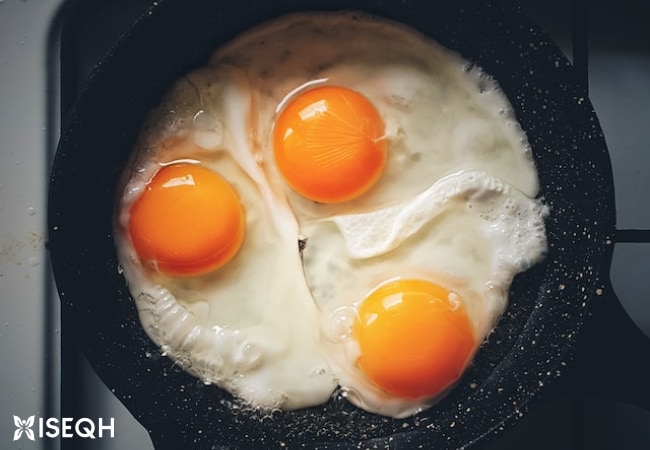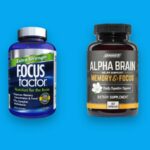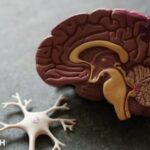
Table of Contents
Introduction
Choline is a nutrient that is essential for human health. It is found in many foods, especially eggs, liver and meat. Choline makes acetylcholine, a chemical that helps nerve cells communicate. It also plays a role in maintaining the structure of cell membranes and in the production of lipids (fats).
The term “choline” refers to the chemical structure of this nutrient, which is made up of three molecules: Choline, acetylcholine and betaine.
This article looks at some of the best choline supplements on the market and how they can help you improve your health. We also discuss the importance of Choline for cardiovascular health and why some people may have a deficiency of this essential nutrient.
What Is Choline Used For?
Choline is most commonly used for liver diseases and fatty liver treatment. This is because patients with fatty liver do not produce enough Choline independently. However, healthy people do not need to take choline supplements. That is because Choline is found naturally in many foods.
Foods high in Choline include egg yolks, beef liver, shrimp, sardines and salmon. Choline is super important to the human body, so most people should eat foods that contain Choline every day. However, people who follow a strict vegetarian diet might need to take a choline supplement to ensure they get the right amount of nutrients.
Also, Choline is important for pregnant women because it can help reduce the risk of congenital disabilities in their unborn babies. It can also help regulate levels of hormones in the body and increase fertility.
Finally, Choline is useful for weight loss because it can boost your metabolism and prevent fat from being stored around your waist and stomach. Although research is still ongoing in this area, one study found that overweight people who were given 1 gram of Choline daily lost an average of 3 kg over four months and had smaller waist circumferences. So Choline can be an excellent aid for weight loss!
Choline Nootropic Benefits
Choline has lots of brain-boosting benefits. For example, it has been shown to help improve memory and focus in people with Alzheimer’s and dementia. It also helps improve brain plasticity and cognitive functions in young adults experiencing mental fatigue or brain fog. In addition, researchers have found that taking Choline helps increase the size of certain brain regions and reduce age-related cognitive decline.
Focus
Choline may improve your focus by helping your brain’s nerve cells communicate more effectively. A lack of Choline can lead to deficiencies in things like memory and cognition. Taking choline supplements may help reverse these deficiencies.
Brain Development
Choline is important for brain health and development. It is important for cell growth and differentiation. It works by repairing damaged brain cells and promoting the formation of new cells. Studies have shown that it can improve memory function in older adults and brain activity in young learners.
Mental Energy
Mental energy can be hard to come by sometimes. But by using choline supplements, you can boost your energy levels and improve cognitive functions. Taking choline supplements may also help treat insomnia and chronic pain conditions. It may also boost the effectiveness of other nootropics and help you reach higher states of alertness. Also, your mental energy may help you to maintain healthy body weight by reducing cravings and preventing overeating.
Memory Improvement
Memory enhancement is something many of us struggle with as we get older. But, by taking choline supplements, you may be able to improve your memory function and potentially reduce the risk of developing Alzheimer’s disease and dementia. In addition, studies have shown that supplementing with Choline can help support normal neurological functioning and prevent damage to the brain over time.
Benefits For Pregnant Women
Pregnant women can expect to see benefits in the health of their babies by taking a daily prenatal vitamin that contains enough Choline. This is especially important for women who are over the age of 35 or are smokers.
Getting enough Choline in your diet can help improve the unborn child’s brain development and memory function. This may also reduce your child’s risk of developing various health problems later in life.
Benefits For Fatty Liver Disease
Researchers from the Department of Endocrinology at the Perelman School of Medicine at the University of Pennsylvania have discovered that choline supplementation might help fight fatty liver disease in people with type 2 diabetes. They found that Choline positively affects the liver through its effects on metabolism.
Choline is a type of B vitamin that helps break down fat in the liver and other body parts. When taken at therapeutic doses, it can reduce liver fat and slow down liver disease progression. If you have type 2 diabetes and are at risk of developing fatty liver disease, talk to your doctor about adding a supplement containing Choline to your diet.
Improves Performance And Athletic Ability
In addition to its beneficial effects on memory function, Choline has also been shown to improve some people’s athletic performance and overall physical fitness.
As a result, it is commonly used by athletes looking to improve their strength and endurance before competitions or big events.
Choline Deficiency
If you suffer from a deficiency in Choline, you won’t get any benefit from taking it as a supplement. In addition, taking high doses of supplemental Choline can harm some people. This can cause unwanted side effects such as headaches, nausea, and abdominal pain.
If you’re taking any medications, you should always talk to your healthcare provider before starting a new supplement regimen.
In addition to helping improve memory function and reduce the risk of developing certain diseases, a daily dose of Choline can also positively affect your physical appearance. Studies have shown that increased intake of this B vitamin can help boost overall body health and minimize the appearance of wrinkles and other signs of aging.
By reducing the effects of oxidative damage on the body, Choline can stimulate the production of new cells and help keep your skin looking young and supple for years to come.
A choline deficiency puts you at risk of serious health problems over time. This can be due to several reasons, including poor diet, poor absorption in the gut, and increased excretion of bile acids in the body. In addition, some people experience a deficiency simply because they aren’t getting enough Choline in their diet.
If left untreated, a choline deficiency can cause various unpleasant symptoms. It can even lead to death in some cases.
Performance Lab Mind
The only nootropic that enhances cognition and helps your brain recover from intense mental exertion
Different types of Choline
Different types of Choline are available on the market today, including alpha-GPC and DL-Choline. Alpha-GPC is a naturally-occurring compound that can promote healthy brain growth and development and prevent diseases such as Alzheimer’s disease and dementia.
However, it can also be costly and carry serious side effects for people with certain conditions. Since Choline is an essential nutrient for human health, it’s important to get the proper amount in your diet to avoid developing deficiency symptoms. Here are the different types of Choline:
Alpha-GPC
This molecule is derived from lecithin, found in egg yolk, liver, kidney, intestines, and heart, among other tissues. To produce Alpha-GPC, a solvent extracts the phosphatidylcholine molecules from the lecithin extract, which is then purified using a series of chemical reactions. The final product is then dried into a powder and encapsulated for consumption.
According to the U.S. National Library of Medicine, Alpha-GPC has been used for centuries as a medicinal supplement to promote memory and cognitive function. It is safe for most people to take as long as it doesn’t interact with other medications or supplements. It also acts as a neuromodulator which can help repair damaged nerve cells and improve brain function.
The University of Maryland Medical Center reports that studies show that consuming Alpha-GPC may improve mood and memory in the elderly and prevent neurodegenerative diseases such as Alzheimer’s disease and Parkinson’s disease. Some experts recommend taking Alpha-GPC on an empty stomach, while others believe that taking it with food will result in better results.
It is generally believed that Alpha-GPC has a more beneficial effect when taken with a meal than if taken on an empty stomach. When taken on an empty stomach, it is thought that the amino acid Tryptophan helps to induce relaxation and improve the mind’s alertness and sleep cycles, whereas when taken with a meal, the intake of fatty acids from food may promote a greater effect.
Citicoline
Citicoline is a synthetic compound similar in structure to cytidine found in human DNA and RNA. Citicoline can be extracted from poultry livers and then converted into an active citicoline by adding hydrochloric acid and alkali.
The processed citicoline can then be purified to create the final product, which is formulated into tablets, capsules, and other liquid forms for consumer use. In addition, studies have shown that citicoline may be effective in improving the symptoms of Alzheimer’s disease by increasing levels of acetylcholine in the brain.
Acetylcholine is one neurotransmitter that sends signals between neurons in the brain and helps control important functions such as learning and memory. It also helps to produce hormones that control mood, appetite, blood pressure, heart rate, and digestion. In addition, research has shown that low concentrations of acetylcholine are associated with the development of Alzheimer’s disease and that increasing the concentration of acetylcholine can delay the progression of the disease.
However, additional studies are needed to determine if citicoline is effective for treating and preventing Alzheimer’s Disease.
DL-Choline
DL-Choline is similar to L-Choline because they are both essential molecules needed to maintain normal cognitive function and health. However, the two substances differ in their role in the body. L-Choline is used to produce acetylcholine, the neurotransmitter responsible for transmitting messages between nerve cells in the body.
Therefore, it is important for maintaining healthy brain functioning, memory and learning ability. In addition, DL-Choline is an oxidized derivative of L-Choline that can cross the blood-brain barrier to enter the brain, which can be used in synthesizing phospholipids needed for cell structure and function. Since the brain is composed of approximately 70% fat tissue, it is particularly rich in phospholipids, so it is important to maintain a healthy level of these lipids for optimal brain functioning.
It is still being determined whether DL-Choline supplements are more effective than L-Choline in improving cognitive function. Still, it may be due to its higher bioavailability and reduced toxicity compared to L-Choline. DL-Choline is available as an oral supplement in capsule form and as a dietary additive in certain food products such as cereal bars and orange juice.
Dietary sources of Choline
It is important to understand which foods contain Choline since adequate amounts must be consumed daily to prevent deficiency. Choline is found in animal-based foods such as meat, fish, poultry, milk and eggs, while plant sources include grains, legumes, nuts and vegetables.
Vegetarians must be especially vigilant about eating a varied diet to maintain a balanced diet with adequate amounts of Choline. Some of the most common food sources of Choline are listed below:
Milk – milk contains both D- and L-Choline;
Egg yolks – the yolks contain both the D- and L- forms
Meats (beef, pork) – red meats are high in L-Choline, while the chicken is an excellent source of D-Choline
Organ Meats (liver, kidney) – are rich in Choline, containing both types
Fish/seafood (tuna, salmon, mackerel, sardines) – are rich in both types of Choline
Soybeans – soybean contains the most bioavailable form of Choline in the form of phosphatidylcholine or PC.
Other sources of Choline include wheat germ, peanuts, brown rice, avocados, peanut butter, whole grains and leafy green vegetables. People who avoid animal products can also take a choline supplement or a supplement containing alpha GPC, another source of Choline available as a dietary supplement.
The recommended daily intake of Choline is between 425 mg to 550 mg per day, depending on the age and individual needs of the person. Foods rich in Choline can be eaten regularly as part of a healthy diet, providing an adequate amount of Choline for the body’s needs. Conversely, a diet lacking in Choline can lead to deficiencies in this nutrient that can adversely affect health, including problems with memory and mood.
KEY TAKEAWAY
Choline is a B vitamin and is an essential nutrient for the brain, liver and kidneys. In addition, the body uses Choline to manufacture acetylcholine, a neurotransmitter that affects brain activity and other bodily functions. Therefore, pregnant and breastfeeding women need to consume enough Choline to ensure the health of their babies.
Diets high in animal foods usually contain adequate amounts of Choline. Still, vegetarians may need to take supplements to ensure that they get enough of this nutrient in their diets. In addition, the body does not store Choline, so it’s important to consume it daily to avoid deficiencies.








